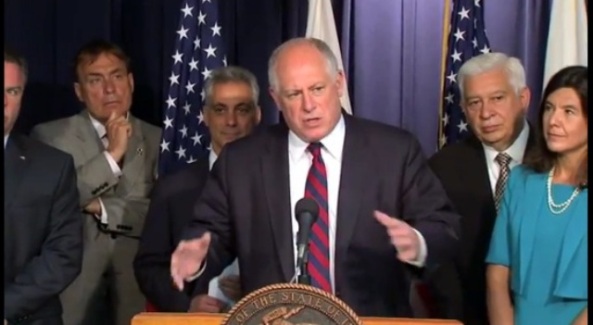
It’s the judiciary’s Nixon-to-China: Chief Justice John Roberts joins the liberal wing of the Supreme Court and upholds the constitutionality of Obamacare. How? By pulling off one of the great constitutional finesses of all time. He managed to uphold the central conservative argument against Obamacare, while at the same time finding a narrow definitional dodge to uphold the law — and thus prevented the court from being seen as having overturned, presumably on political grounds, the signature legislation of this administration.
Why did he do it? Because he carries two identities. Jurisprudentially, he is a constitutional conservative. Institutionally, he is chief justice and sees himself as uniquely entrusted with the custodianship of the court’s legitimacy, reputation and stature.
As a conservative, he is as appalled as his conservative colleagues by the administration’s central argument that Obamacare’s individual mandate is a proper exercise of its authority to regulate commerce.
That makes congressional power effectively unlimited. Mr. Jones is not a purchaser of health insurance. Mr. Jones has therefore manifestly not entered into any commerce. Yet Congress tells him he must buy health insurance — on the grounds that it is regulating commerce. If government can do that under the commerce clause, what can it not do?
“The Framers … gave Congress the power to regulate commerce, not to compel it,” Roberts writes. Otherwise you “undermine the principle that the Federal Government is a government of limited and enumerated powers.”
That’s Roberts, philosophical conservative. But he lives in uneasy coexistence with Roberts, custodian of the court, acutely aware that the judiciary’s arrogation of power has eroded the esteem in which it was once held. Most of this arrogation occurred under the liberal Warren and Burger courts, most egregiously with Roe v. Wade, which willfully struck down the duly-passed abortion laws of 46 states. The result has been four decades of popular protest and resistance to an act of judicial arrogance that, as Justice Ruth Bader Ginsburg once said, “deferred stable settlement of the issue” by the normal electoral/legislative process.
More recently, however, few decisions have occasioned more bitterness and rancor than Bush v. Gore, a 5 to 4 decision split along ideological lines. It was seen by many (principally, of course, on the left) as a political act disguised as jurisprudence and designed to alter the course of the single most consequential political act of a democracy — the election of a president.
Whatever one thinks of the substance of Bush v. Gore, it did affect the reputation of the court. Roberts seems determined that there be no recurrence with Obamacare. Hence his straining in his Obamacare ruling to avoid a similar result — a 5 to 4 decision split along ideological lines that might be perceived as partisan and political.
National health care has been a liberal dream for a hundred years. It is clearly the most significant piece of social legislation in decades. Roberts’s concern was that the court do everything it could to avoid being seen, rightly or wrongly, as high-handedly overturning sweeping legislation passed by both houses of Congress and signed by the president.
How to reconcile the two imperatives — one philosophical and the other institutional? Assign yourself the task of writing the majority opinion. Find the ultimate finesse that manages to uphold the law, but only on the most narrow of grounds — interpreting the individual mandate as merely a tax, something generally within the power of Congress.
Result? The law stands, thus obviating any charge that a partisan court overturned duly-passed legislation. And yet at the same time the commerce clause is reined in. By denying that it could justify the imposition of an individual mandate, Roberts draws the line against the inexorable decades-old expansion of congressional power under the commerce clause fig leaf.
Law upheld, Supreme Court’s reputation for neutrality maintained. Commerce clause contained, constitutional principle of enumerated powers reaffirmed.
That’s not how I would have ruled. I think the “mandate is merely a tax” argument is a dodge, and a flimsy one at that. (The “tax” is obviously punitive, regulatory and intended to compel.) Perhaps that’s not how Roberts would have ruled had he been just an associate justice and not the chief. But that’s how he did rule.
Obamacare is now essentially upheld. There’s only one way it can be overturned. The same way it was passed — elect a new president and a new Congress. That’s undoubtedly what Roberts is telling the nation: Your job, not mine. I won’t make it easy for you.
via National View: Why Chief Justice Roberts upheld the health-care act | Duluth News Tribune | Duluth, Minnesota.









